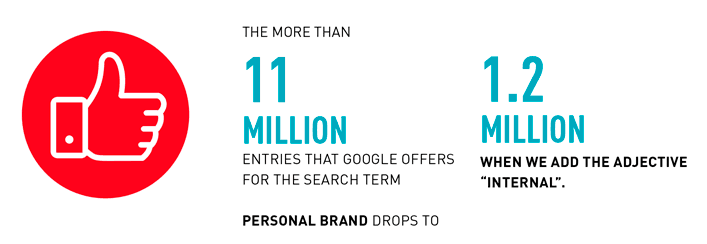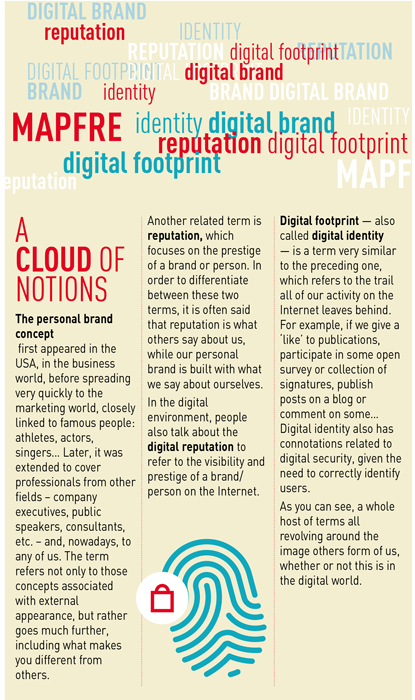Everything we do or say has an effect on other people and, bit by bit, contributes toward progressively building a personal image, with social networks serving an important ‘broadcasting’ role. But, what happens behind closed doors within an organization? Our internal personal brand is also important and we must strengthen it.
TEXT LUZ GARCÍA | ILLUSTRATION THINKSTOCK
In a world in which every hour sees 3.5 million photos and videos uploaded to Instagram, and over 20 million tweets published, and where being a YouTuber is one of the most attractive professions for young people, it seems clear that our digital footprint is increasingly important. Terms such as personal brand or online reputation now frequently crop up in our conversations, but… have you ever stopped to think about the internal dimension of your personal brand? About what your footprint in the company where you work is like?
The answer to these questions is most probably “no”. Don’t worry, most people would have given the same answer. You can do a quick test: the 11 million-plus entries Google offers for the search term ‘personal brand’ drop to 1.2 million when we add the adjective ‘internal’. And, of these, most actually refer to other topics.
Words such as networking, identity, impact measurement… are used in most cases with an external connotation. But, what happens in increasingly transversal companies, with various forms of leadership by influence, where collaborative work triumphs? This is where the internal personal brand is starting to be highly relevant; it is therefore well worth taking some time to reflect on how we can build a strong reputation with our colleagues, bosses and collaborators.

First, let’s try to clarify the concept, as a whole hodgepodge of terms are being used interchangeably to discuss these topics, but their meaning is not always exactly the same (see page 37). Your internal personal brand will be defined by several elements. Some of the most relevant are: the perception of your performance by those around you; what you say about yourself; what others say about you; and what sets you apart.
Let’s break this down. Direct participation is probably what best defines us and what, in principle, can have the most influence on our internal reputation. The problem is that in major enterprises with a huge number of employees, or in global companies which operate in different countries, the possibilities of direct contact, beyond our closest circle, are rather limited.
How, then, can we extend our sphere of influence? In the same way as we would in an external setting: by networking, in this case internal, or by being ready and willing to engage in transversal projects. An open attitude to collaboration with our colleagues from other areas and departments, and an interest in knowing the workings of the company, beyond our daily routines, can also help us in this task. And, of course, consulting, monitoring and participating in the in-house media that the company places at our disposal.

In the case of MAPFRE, for example, the global Intranet, which already reaches 30,000 Group employees around the world, is the ideal environment for learning what the company is doing in other countries, sharing comments, analyzing publications, following colleagues with similar interests or those working on topics we find attractive, etc. Little by little, the Intranet will introduce all the collaborative possibilities it has to offer, such as the communities spaces, and will become a key element around which our life in the company will revolve.
What makes us unique?
What sets us apart from others is one of the key aspects of a personal brand. What we do differently from most people, or what exactly our main strength consists of, can become important elements of our identity. These differences generate a diversity of profiles that enrich the whole company.
In order to advance along this road, you must undertake some self-examination. This is something we cannot help you with, but we encourage you to try it, as reflecting on what makes us unique and different, and on which aspects we should develop so as to add greater value to our most immediate circle, is always positive.





